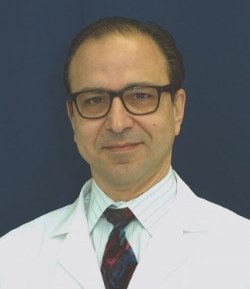You are here
Plastic Surgery with Adipose Stem Cells

Your own fat tissue is an abundant source of stem cells. Ever since Mesenchymal Stem Cells (MSCs) were first extracted from adipose tissue in the late 1990's, there has been an exponential growth in research and clinical trials using stem cells derived from adipose (fat) tissue.
The reason for this sudden interest is due to the inherent qualities of adipose tissue. First of all, adipose tissue is readily available and easily harvested using well established liposuction techniques. Secondly, there is a lot of adipose tissue available for harvest. Finally, the concentration of stem cells and other progenitor cells per gram of adipose tissue is more than 100 fold greater than the number of cells recovered from an equal amount of bone marrow.
The fact that adipose tissue is a prolific source of MSC's has important practical implications for therapy. Therapeutic doses of stem cells can be obtained without the need for culture expanding the cells in a lab. This shortens the cell processing time from several weeks (culture expanded) to one day (freshly isolated).
For example, in the cell processing station in my clinic we get mononuclear cell yields of 300,000 to 1.4 million cells per cc of tissue, depending on the patient's age and isolation techniques. If we harvest 200cc's (slightly less than a cup) of adipose tissue, the total cell yield can range from 60-280 million cells. These are therapeutic doses of cells that can then be re-administered to the patient in the same operating session. For this reason, adipose tissue is attracting the attention of many academic institutions, researchers, and clinicians.
After adipose tissue is extracted, the freshly isolated cells obtained with enzymatic digestion are referred to as the Stromal Vascular Fraction, or SVF. As implied by the name, the cells come from the stroma, or connective tissue matrix and blood vessels of the adipose tissue. The SVF is a mix of various cell types. Approximately 10% of the SVF are Mesenchymal Stem Cells (MSCs). The remaining cells are a mixture of precursor cells (pre-adipocytes, endothelial progenitor cells), immune cells (macrophages, lymphocytes), and a small amount of other cells including red blood cells. The beauty of this mixture is that the combination of cell types together represent a 'stem cell niche' where cells interact with differing degrees of 'stemness'.
The Stromal Vascular Fraction can be used immediately, stored for future use, or culture expanded to grow a repeat dose for use during a convalescent period. The US Armed Forces is exploring the potential of adipose tissue in wartime injuries and has forged alliances with several academic centers that have well established programs in adipose tissue research.
Another important milestone in the field of adipose stem cells is the development of relatively inexpensive modular medical devices that incorporate all the steps of extracting stem cells from a patient's adipose tissue in a closed environment that satisfies the FDA requirements of cGMP (cellular Good Manufacturing Practices). This means that any surgeon can have the capacity to extract, process, and reinject a patient's own stem cells for therapy in the same day.
Although the technology is available for cost effective deployment, regulatory hurdles remain to bring these devices to the marketplace. Even in the case of your own cells, called 'autologous cells', the FDA has not determined whether the SVF is considered a 'biologic drug'. Thus, any clinician contemplating use of autologous SVF must go through the process of obtaining an Institutional Review Board (IRB) permission for an experimental therapy and any clinical trial must be registered with the FDA. This can represent a significant challenge to many practitioners.
Despite these hurdles, adipose derived stem cell therapy is already being deployed in clinical trials around the world. In June 2012, Leeza Rodriguez began tracking the Adipose Stem Cell Clinical Trials that are registered at ClinicalTrials.gov database and posting the analysis on a page of my website. At that time, there were 54 registered clinical trials, and the list of disease indications blankets the entirety of the human body, including fistulas, breast reconstruction, cardiovascular disease, pulmonary, diabetes, auto immune, neurological, and others. Since June 2012, other indications such as traumatic brain injury and osteoarthritis have been added.
I am currently participating in a research study that uses autologous SVF to treat radiation damage in women following breast cancer treatments. Not only will we be treating radiation damage, but we will also be tracking the adipose stem cells to see where they migrate and how long they stay at the site of injury. This research study is funded by a grant from the Maryland Stem Cell Research Fund. Our team includes researchers at JHU, University of Maryland, Celsense, and CosmeticSurg.
Adipose stem cells will play an important role in the future of regenerative medicine. To learn more about adipose stem cells or to ask me questions, please visit my interactive blog. You can also follow Dr. Rodriguez on Google+.


